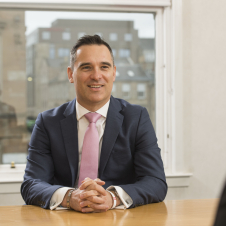Insights
Our experts provide their insights on the latest industry developments and share tips on accountancy and business matters.
28 May 2024
VAT for dental practices – which treatments are exempt and which aren’t?A number of recent Tribunal cases has shone the spotlight on businesses who have been incorrectly treating supplies of cosmetic treatments as being VAT exempt.
22 March 2023
Pensions and the NHSThe Spring Budget 2023 announced some interesting changes on the pension front which are of particular relevance to some individuals in the NHS.
22 July 2022
NHS Pension concerns – the McCloud JudgementFollowing the McCloud Judgement, the Government has changed the eligibility criteria for the NHS 2015 CARE Scheme so that from this tax year, 6 April 2022 – 5 April 2023, all continuing members of the NHS Pension Scheme will be transitioned to the 2015 CARE Scheme.
29 September 2021
The importance of cash flow modelling for Medical & Healthcare professionalsAs a medical and healthcare professional it can be difficult to envisage what your income, expenditure and goals look like in reality. This is where we can use a cashflow model tool to give you a visual representation of your financial goals and objectives. Valerie Cronshaw from our Wealth team discusses further.
13 July 2021
NHS non-pension benefitsIn this blog for Medical and Healthcare professionals, we look at some of the non-pension benefits that the NHS provide and pose the question, “What would happen if…?”.
Arrange a free consultation with the team now
Have a general enquiry? Get in touch.



